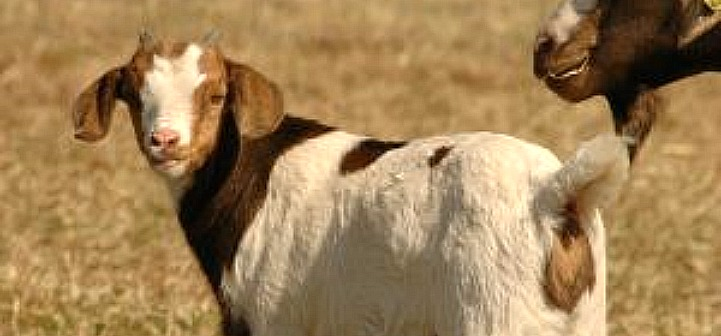The recommended planting dates for oats, rye, and wheat (small grains) are between December and January. Plant ryegrass, crimson, and clover between February and March. For other areas, contact your local Cooperative Extension agent for a list of recommended forages.…
What are the recommended seeding rates for oats, rye, wheat, and ryegrass?
For oats, rye, and wheat the seeding rate is 90 to 120 lb per acre when planted alone or 60 to 90 lb per acre when planted with something else. The rate for annual ryegrass is 20 to 30 lb per acre when sown alone or 10 to 15 lb when sown in a mixture.…
Which plants are poisonous to goats?
There are several plants that can be poisonous to goats. However, the severity of plant poisoning depends on the quantity of the plant that was eaten, the amount of ground moisture, the health of the animal prior to consuming the toxic plant, and the size and age of the animal that consumed the plant.
Under normal circumstances, animals will not consume poisonous plants. However, there are some factors that might cause goats to eat poisonous plants. Those factors include starvation, …
What are grasses?
Grasses are monocotyledons and belong to the family Gramineae. Leaves from these herbaceous plants appear as blades, with parallel veins. Grasses seldom exceed 15 percent crude protein content. Some examples of grasses are the following: Bahia, bermudagrass, stargrass, bluestem, sudangrass, barley, oats, rye, rape, switchgrass, pearl millet, ryegrass, wheat, dallisgrass, and brown top millet. For more information on grasses, see Goat Pastures and Forages .…
What are browse and forbs?
Browse is the tips of woody shrubs and trees, as well as the occasional broad-leaved plant, and forbs are flowering plants. Some examples of browse and forbs are mimosa, sagebrush, chicory, and briars. For more information, see Goat Vegetation Management.…
What minerals do goats require?
To achieve maximum production levels, it is necessary to provide a free choice complete goat mineral supplement or a 50:50 mix of trace mineralized salt and dicalcium phosphate. In addition, goats need the following:
Calcium: Major functions include blood clotting, membrane permeability, muscle contraction, nerve function, cardiovascular functions, and enzyme activity. Adequate levels of calcium for lactating goats are necessary to prevent parturient paresis (milk fever). In browsing or grain-fed goats, the addition of a calcium supplement (dicalcium phosphate, limestone, …
